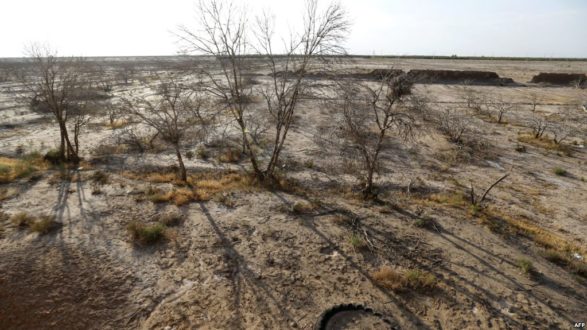Iranwire – Residents of Iran’s arid south-eastern province of Sistan and Baluchistan are grappling with formidable challenges at the beginning of the summer season.
With a dust storm unleashing winds exceeding 100 kilometers per hour, the impoverished province faces a severe water crisis and the rampant spread of malaria.
The director of water and sewage affairs in the city of Zahak raised alarm bells over a dramatic pressure drop in rural water distribution networks, which he said led to acute shortages in many villages.
Ghlam Mohsin Lakzaianpour said that villagers in Jarikeh, Nawab, Khaliqdad, Kohak, Dasht Amirnizam and elsewhere are facing disruptions in drinking water supplies, forcing them to rely on water tankers.
Alireza Ghasemi, CEO of Sistan and Baluchistan Water and Sewerage Company, noted that over 90 percent of the region is affected by drought and estimated the current water shortage there to be 65 million cubic meters per year.
Meanwhile, the vice president of the Health Department at Iranshahr University of Medical Sciences reported an upsurge in malaria cases in the region during the first quarter of the year.
In an interview with the ISNA news agency, Faizur Rahman Rasoulizadeh said that more than 2,000 people have been diagnosed with the waterborne disease.
Water shortages – and protests over water scarcity – are becoming more commonplace across Iran.
Poor water management, drought, and corruption-ridden infrastructure projects have contributed to the crisis.
Moinuddin Saeedi, the representative of Chabahar in parliament, warned that the water crisis in Sistan and Baluchistan could trigger mass migration from the province to other parts of the country.
He stressed that such a scenario would undoubtedly create additional crises, particularly in big cities.
Last week, Iran’s Migration Observatory revealed that 10,000 families have been forced to migrate from Zabol in Sistan and Baluchistan province over the past year due to harsh climate conditions and water shortages.
 Shabtabnews In this dark night, I have lost my way – Arise from a corner, oh you the star of guidance.
Shabtabnews In this dark night, I have lost my way – Arise from a corner, oh you the star of guidance.



